Table of Contents
ToggleDebt can feel like that annoying friend who just won’t take a hint and leave. It sneaks up on you, piling on stress and stealing your peace of mind. But fear not! Clearing debt is like a superhero mission, and anyone can don the cape. With the right strategies, it’s possible to kick those financial woes to the curb and reclaim control of your life.
Imagine waking up free from the chains of monthly payments and interest rates that seem to multiply faster than rabbits. It’s time to take charge and turn your financial drama into a success story. Whether it’s consolidating loans or creating a budget that actually works, the path to freedom is just a few smart choices away. Let’s dive into the world of debt clearing and discover how to transform that overwhelming weight into a feather-light sense of relief.
Understanding Debt
Debt represents a significant challenge for many individuals. Recognizing the different types and causes of debt aids in managing financial situations effectively.
Types of Debt
Individuals encounter various debt types during their financial journeys. Secured debt, such as mortgages or auto loans, connects to an asset, meaning a lender can claim the asset if payments fall behind. Unsecured debt, including credit card balances and personal loans, lacks collateral and often has higher interest rates. Medical debt arises from healthcare costs not covered by insurance, impacting many families. Student loans help cover educational expenses but can amount to substantial long-term debt. Understanding these categories provides clarity in addressing one’s financial obligations effectively.
Causes of Debt
Multiple factors contribute to the accumulation of debt. Unexpected medical emergencies can lead to significant expenses not covered by insurance. Job loss affects income stability, creating immediate financial strain. Lifestyle inflation occurs when individuals increase spending as income rises, which can quickly result in debt if not managed properly. Overspending on credit cards, often due to impulse purchases or inadequate budgeting, creates a cycle of debt. Understanding these causes allows for better strategies to avoid falling into similar traps.
Strategies for Clearing Debt

Effective strategies help in clearing debt and regaining financial stability. Several methods focus on organization and commitment, providing a clearer path to freedom from obligations.
Budgeting Techniques
Implementing budgeting techniques can streamline finances. Tracking monthly expenses allows individuals to identify areas for reductions. Creating a zero-based budget ensures that every dollar has a purpose, reducing unnecessary spending. Regularly reviewing financial goals keeps progress in check. Utilizing apps or spreadsheets offers convenience and enhances understanding of spending habits.
Debt Snowball Method
The Debt Snowball Method emphasizes tackling smaller debts first. By paying minimums on larger debts while making extra payments on the smallest, one gains momentum. This method boosts motivation as debts disappear, reinforcing a sense of achievement. Celebrating small victories along the way encourages continued effort. Individuals are more likely to stay committed when they see tangible results quickly.
Debt Avalanche Method
Following the Debt Avalanche Method involves prioritizing debts by interest rates. Higher interest debts receive extra payments while minimums sustain lower interest ones. This approach minimizes overall interest paid, leading to savings in the long run. Staying disciplined with this method requires consistent focus on financial objectives. Individuals can benefit from saving money and clearing debt faster by applying this strategy effectively.
Seeking Professional Help
Seeking professional assistance often proves beneficial for those struggling with debt. Experts offer guidance and support tailored to individual financial situations.
Credit Counseling
Credit counseling provides insight into managing finances and creating a structured plan. Certified credit counselors analyze personal budgets and suggest strategies to handle debt. Most sessions involve reviewing income and expenditures, allowing clients to identify unnecessary expenses. Programs may include debt management plans, which consolidate payments into a single monthly transaction. Many credit counseling services charge minimal fees, making them accessible to a broader audience. Nonprofit agencies often offer free workshops that educate clients about budgeting, saving, and rebuilding credit after debt is cleared.
Debt Settlement Services
Debt settlement services specialize in negotiating reduced payments on outstanding debts. Professionals in these firms typically advocate with creditors to lower total balances. While these services can lead to significant savings, clients must consider the potential impact on credit scores. Clients may face tax implications since forgiven debt could be taxable income. It’s crucial to review contracts carefully, as some organizations may charge fees upfront. Research demonstrates that working with reputable debt settlement companies can yield positive results, making it essential to choose wisely when seeking assistance.
Maintaining a Debt-Free Lifestyle
Maintaining a debt-free lifestyle involves strategic planning and disciplined financial management. An emergency fund plays a crucial role in achieving this goal.
Building an Emergency Fund
Establishing an emergency fund provides a financial safety net. Savings for unexpected expenses like medical bills or car repairs reduce the likelihood of accruing debt. Aim for three to six months’ worth of living expenses. Start small by setting aside a portion of each paycheck. Over time, growing this fund builds confidence and security. Having an adequate emergency fund protects against relying on credit cards during crises. Prioritizing savings early creates a solid foundation for financial stability.
Responsible Financial Habits
Adopting responsible financial habits ensures long-term debt freedom. Monitoring expenses helps identify spending patterns. Creating a budget allows for better allocation of funds. Another practice involves paying bills on time to avoid late fees. Regularly reviewing financial statements encourages awareness of one’s financial health. Utilizing cash instead of credit cards can prevent overspending. Lastly, prioritizing needs over wants maintains financial discipline. Reinforcing these habits establishes a strong financial future.
Clearing debt is not just a financial task; it’s a journey towards regaining control and peace of mind. By understanding the nature of debt and implementing effective strategies, anyone can transform their financial situation.
With commitment and the right tools, individuals can break free from the cycle of debt and build a solid foundation for the future. Embracing responsible financial habits and seeking professional guidance when needed can make a significant difference.
Ultimately, the goal is to create a sustainable, debt-free lifestyle that promotes financial health and security. Taking the first step towards debt clearance can lead to a brighter financial future.






